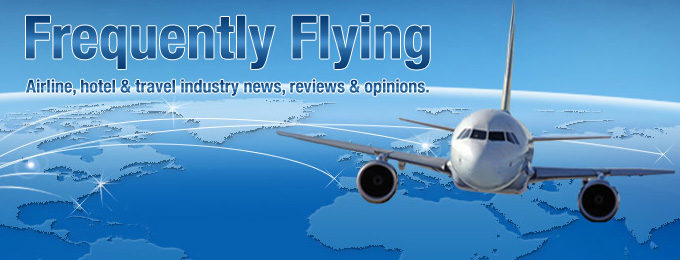Earlier this week, United Airlines and many other carriers presented at the J.P. Morgan Aviation, Transportation & Defense Conference in New York, and once again, Jeff Smisek was very engaging as he’s willing to go off-script a bit adding more than what the bland presentation slides provide. I listened to the 40-minute audio of his presentation and Q&A session last night and found the following particularly interesting, some of which I was hearing for the first time (bolded items).
He started his talk off by showing the “Rah! Rah! United” commercial currently seen immediately preceding the safety videos airing onboard this month (and last) jokingly claiming, “We need to sell some tickets.” While proceeding through the slides, he mentioned:
- Consolidation has been very, very good for the airline business in part because the industry was selling seats for far less than customers were willing to pay from the 1980s until the mid-2000s.
- United’s current management team is focused on sufficient and sustainable return on invested capital (ROIC) and a “significant” portion of their compensation is tied to achieving this goal.
- The unbundling of products and services has created high margin items, something rarely seen in the airline industry.
- United is “marching toward a higher business mix.”
- The Guam hub/service is a profitable operation.
- United will take delivery of 19 fuel efficient 737-900ERs this year and the first five of 50 787s (I thought it was to be six in 2012). He also mentioned they “plan to revenue manage that airplane (787) differently than the rest of the fleet.” I translate that as “good luck getting BusinessFirst award seats.”
- 777 pilots are common type-rated with the 787.
- Depending on demand and seasonality, certain markets will see 787s swapped in on 777/747 routes. Makes sense.
- Original capacity guidance for 2012 has been adjusted downward with the airline now anticipating a decrease of between -0.5% to -1.5% YOY.
- United will be investing in customer resource management (CRM) software to better deliver the right offers to the right customers.
- He plugged Chase as being a very important partner of MileagePlus. Not surprising.
- He also recognized that issues remain from the conversion on March 3rd to a new passenger service system and gave a similar “we’re working on the issues” as the press releases since have mentioned.
During the Q&A portion:
- When asked, “Who will be running MileagePlus?” he responded with the simple fact that United is now since the OnePass program has been integrated. I think the questioner was aiming more at management style (CO vs. UA), so it effectively went unanswered.
- He’s comfortable with March bookings and isn’t particularly concerned over later months’ advance booking levels.
- When asked, “Do you make more money if American and US Airways merge?” he laughed and simply stated his viewpoint again that consolidation has been good and can continue to be a good thing.
- His top priorities for what Washington should be focused on are 1) modernization of the air traffic system and 2) a national airline policy with rational levels of taxation.
- He declined to comment on specific compensation United will receive from Boeing for the late deliveries of the 787.
- Revenue management moved to origin & destination-based vs. by segment and it underperformed in February noting it needs a degree of learning and history.
- He takes comfort in Delta’s RASM growth noting it shows how well a carrier can realize synergies post-merger.
The slide presentation can be found on United’s Investor Relations page with the audio currently available from J.P. Morgan. Presentations from the other airlines present are also available if you’re interested.

